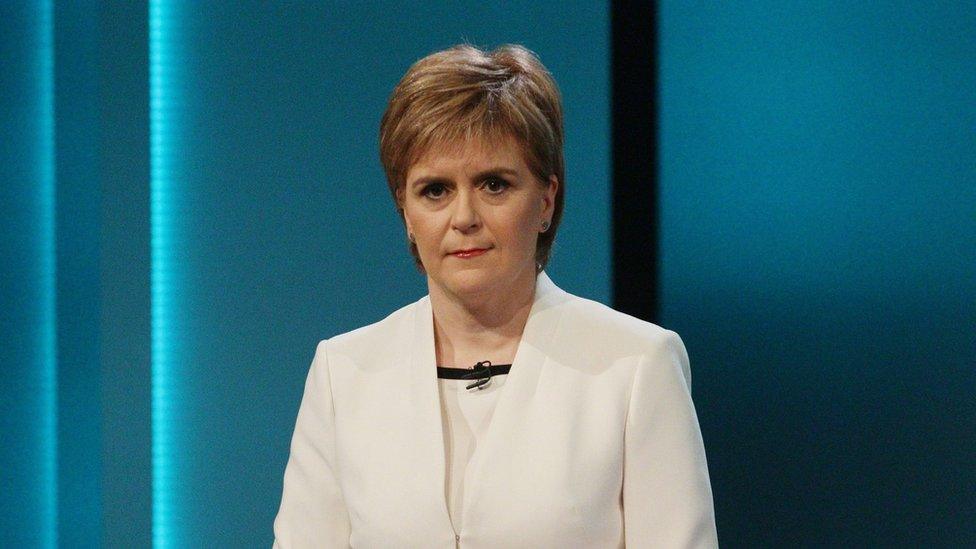MSPs discuss EU referendum despite Holyrood purdah
- Published
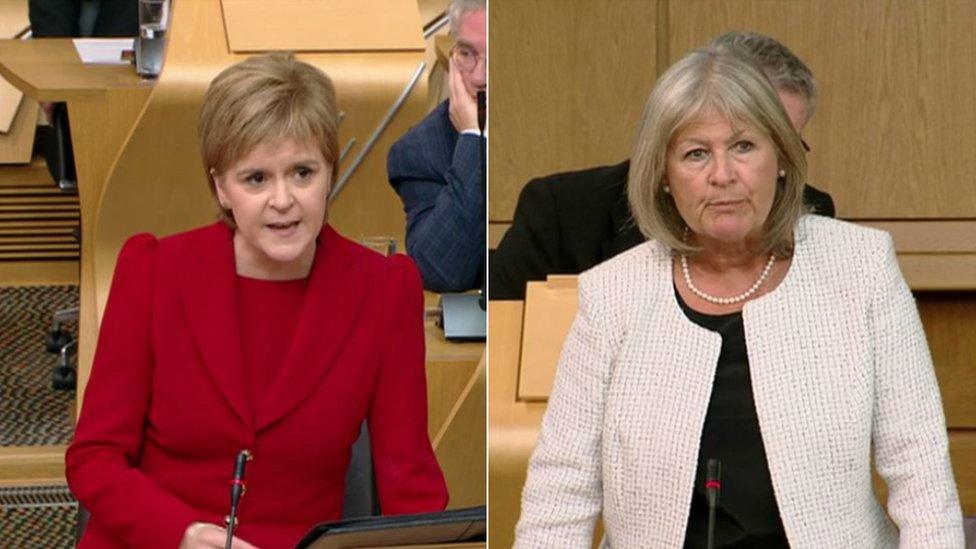
Nicola Sturgeon and Margaret Mitchell put forward arguments for and against membership of the European Union
MSPs have voiced arguments for and against the UK leaving the European Union, despite a ban on discussing the referendum at Holyrood.
Members are barred from advocating one side or the other in the Scottish Parliament chamber under purdah rules.
However, Labour leader Kezia Dugdale raised issues relating to the vote during first minister's questions.
And Leave campaigner Margaret Mitchell then managed to put her arguments across while raising a point of order.
Presiding Officer Ken Macintosh said the rules had not been broken.
The Scottish Parliament is not allowed to use its resources to promote one side or the other during the EU referendum.
MSPs were told that this meant they could not make arguments advocating either Remain or Leave in the chamber, because these would then appear in the official report, a publication of parliament.
Ms Dugdale sought to find a way around this during the final session of questions to the first minister before the vote, by asking about closely related matters.
She asked about access to the single market, and whether the government was prepared for "sudden shocks to the economy".
The Labour leader also said the issue was about "securing hundreds of thousands of jobs, protecting the rights of workers and showing the world the type of country we want to be".
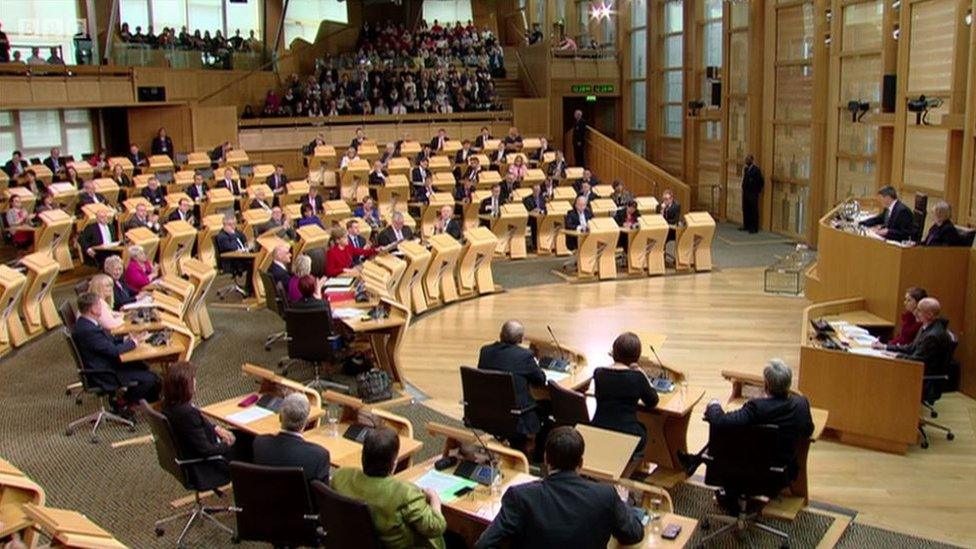
Nicola Sturgeon said she agreed "very strongly" with Ms Dugdale, saying she believed that "independent countries must work together to tackle the issues that no country can deal with on its own, and that does include issues like climate change, the refugee crisis and tackling terrorism."
The first minister also said her government would "seek to protect Scotland's interests in all circumstances", saying there had been "appropriate planning" for a situation where Scotland were removed from the EU despite a majority vote for Remain north of the border.
Having previously suggested this could lead to a second independence referendum, she said: "All options to protect our relationship with Europe and the European Union will require to be considered."
Brexit arguments
Tory MSP Margaret Mitchell, who backs Brexit, raised a point of order challenge whether these exchanges had breached purdah, and took the opportunity to make some points of her own.
She said: "She said: "If they have been breached, what opportunity will there be to point out the unfettered free movement of people will deeply damage the economy and our public services, and to point out that as the fifth-largest economy in the world and a talented and innovative people the UK is more than capable of surviving outside the EU, and in fact it has been Nato and the UN which has preserved our security, not the EU?"
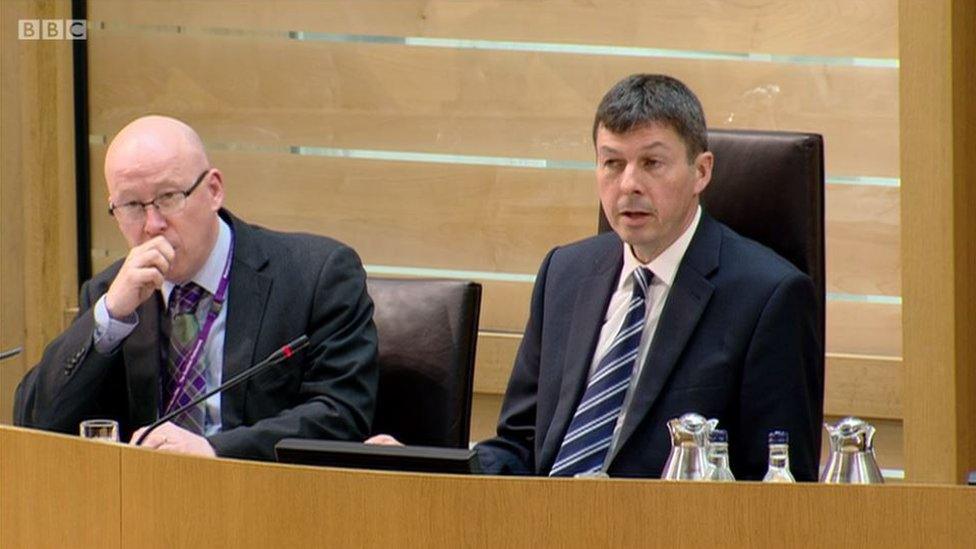
Presiding Officer Ken Macintosh said it was his judgement that rules had not been broken
Mr Macintosh said the decision to bar discussion of the referendum had been taken by the parliament's business bureau of MSPs, which had taken legal advice on the matter.
He said he had listened "very carefully" to the questions put.
He said: "It is my judgement that they did not breach that agreement and they did not take a side on either side of the referendum issue.
"They did not use parliamentary resources to promote one side of the argument."
Some members have spoken out against the purdah rules, which are enforced at Holyrood but not at Westminster, with Green MSP Andy Wightman saying it was "ridiculous" and Tory member Adam Tomkins saying he was "utterly baffled" by their application.
And Labour MSP Neil Findlay, raising another point of order, said there needed to be "absolute clarity" about the rules.
Mr Macintosh replied that he did not judge either the questions or answers to be "an abuse of resources".
- Published17 June 2016
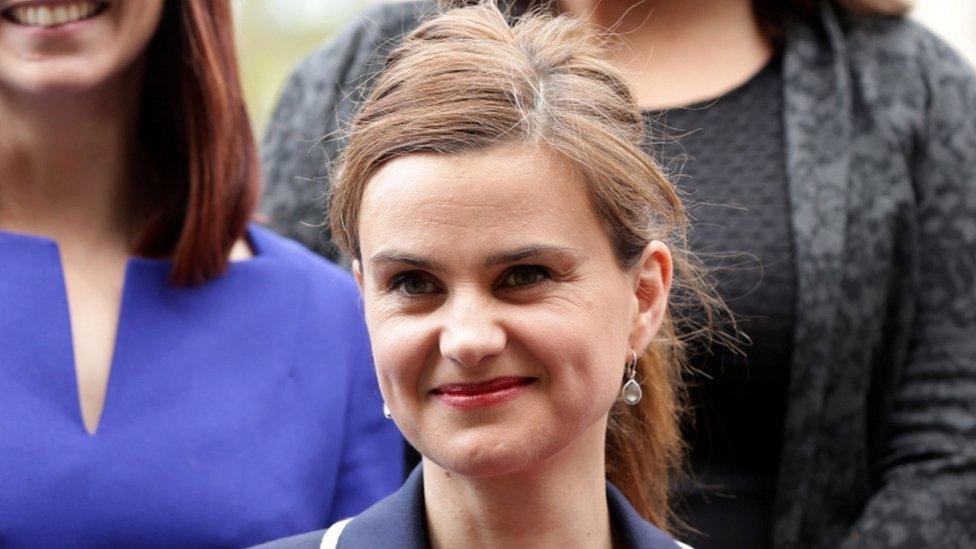
- Published15 June 2016
